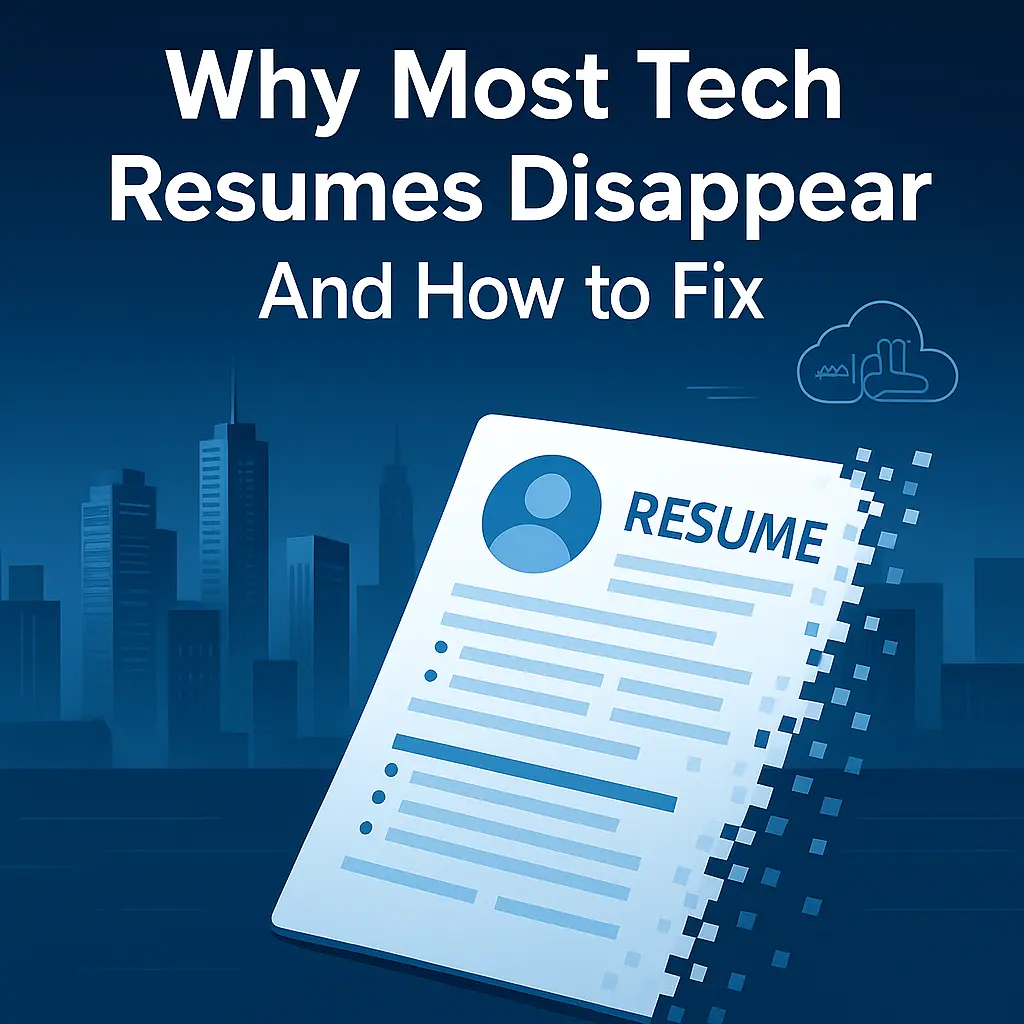The question most job seekers ask when creating their skill section is, “What skills should I put on my resume?”
It seems like a simple question, but the answer can make or break your chances of landing an interview. List too few, and you risk underselling yourself. List too many, and your resume starts to look generic.
The real challenge is figuring out which skills actually matter to employers and how to present them in a way that feels authentic, tailored, and relevant to the role.
If you’re new to the job market, just starting out, maybe fresh out of college, chances are you’re still figuring out how to write your resume in a way that would impress hiring managers. But the real impression starts with your skill section, as the frontliner of your resume.
And if you’re a mid-career professional diving back into the job market, you’re aware of the tight competition going on there. It’s a battlefield of skills and experience. It’s fair to say, you already know the drill and how brutal ATS can be in scrutinizing your paper.
That means the skills you choose to include and how you phrase them can determine whether your resume makes it past the first filter.
Nowadays, job seekers match the energy of the recruitment process, it’s AI vs. AI. ATS is an AI-powered scanner, and job seekers are using AI tools to keep up. Gone are the days of manual resume writing. And if you’re still doing so, maybe that’s the reason you’re here. You’re facing one of the toughest parts in job hunting: writing your resume, particularly your skill section.
In this guide, we’ll break down how to choose the right skills, avoid common mistakes, and use AI-powered tools to help you customize your resume for every job you apply to without the added stress.
Want to skip the guesswork? Try Jobsolv’s free AI resume builder to tailor your resume in minutes.
Why Listing the Right Skills on Your Resume Matters
Including the right skills on your resume can make all the difference.It’s one of the first things employers look for to decide if you're a good match for the role and whether you move forward in the hiring process.They check for both hard skills, like technical abilities, and soft skills, such as problem solving and leadership skills.
To get noticed, your skills should line up closely with what the job description asks for. That’s where customizing your resume really pays off.
What takes it even further? Showing what you’ve actually done with those skills. Mention projects, results, or achievements that prove your abilities, not just on your resume, but when you’re sitting across the interviewer in the interview chair.
It’s your chance to show you’re not only qualified, but ready to hit the ground running.
Not sure which skills to highlight or how to frame them? Jobsolv can help pinpoint the strengths that matter most for your resume.
Highlighting Your Skills Get You Past the ATS
If you don’t use the right words that match the job ad, your chances of getting through are slim. You need about 80 to 90 percent of the relevant skills listed, both soft and hard.
Make sure these skills match what the job ad asks for, literally.
Once you’ve made it past the ATS with a strong match, congratulations!
You get a call or an email for an interview invite.
But there’s another step to tackle, proving those skills aren’t just words on paper. Make sure what you’ve written on your resume truly reflects your capabilities and not just for the sake of landing interviews, honesty is still the best approach.
Employers Want Relevant, Not Generic Skills
After your resume clears the ATS, the next challenge is impressing the actual employer. They want to see skills that meet their specific needs.
Instead of throwing in every skill that sounds impressive, focus on the ones that relate directly to the job you’re applying for. Employers value job-specific skills because they show you’re ready to jump in and understand what it requires from day one.
Here’s a quick tip: tweak your skills section for every job you apply to. Don’t copy and paste the same list across applications.
This goes beyond just including a mix of soft and hard skills.; it's about selecting those that explicitly exhibit how well you meet the role's criteria.
For example, if a job ad emphasizes teamwork and communication, highlight your interpersonal strengths rather than vague terms like “hardworking.”
Also, take note, relevant certifications and experiences also draw an employer's attention by demonstrating devotion, engagement in your profession, and ability to succeed in that field.
Learn how keywords, especially the skill section matter most in a resume here.
Most Common Resume Skill Mistakes Job Seekers Make
The most common mishap we see, job seekers often slip up by listing too many skills or the wrong ones. Often, they mix hard and soft skills or use them interchangeably without considering what the job actually requires. This can confuse employers who are looking for specific talents.
Another frequent slip-up, just dropping buzzwords like "team player" or "hard worker" without showing real examples is a big mistake. It makes your resume look empty and dishonest.
A major error we often see is not tailoring your skills to match the job ad. This is one of the biggest issues we run into again and again. Every job has different priorities, so copying and pasting the same skill list into every application just won’t work. Claiming skills you don’t actually have or saying yes to everything can also backfire later.
And if your skills section looks messy or unorganized, hiring managers might just skip it altogether.
Listing Too Many Skills
Listing too many skills can hurt your resume. Candidates should focus on at least six to eight strong abilities that match the job. Don’t aim for perfection, as excessive skills can be overwhelming for employers and blur your message.
Quality matters more than quantity in this section. An overcrowded skills list may even lead to rejection by Applicant Tracking Systems, or ATS. Stick with relevant skills to make a better impression.
Using Buzzwords Without Backing Them Up
Buzzwords can sound fancy, and one might think it’s impressive, but they often fall flat. Many job seekers use terms like "innovative" or "dynamic." These words look good on paper, but without proof, they mean little to nothing.
When you claim to have skills, show how you've used them. Vague claims and empty promises can make your resume appear weaker.
Remember, you’re not fooling anyone. These HR professionals are well-educated people and are trained to spot talent as much as spotting made-up paper.
Lacking substance is a big mistake. Buzzwords without examples seem shallow. Instead of saying you're a great leader, tell about a time you led a team to victory. Use real stories that back up your claims.
This adds weight to your skills and makes you stand out from the crowd.
Now, let's see how to figure out which skills are right for your resume.
How to Know What Skills to Put on Your Resume
Listing the right skills on your resume is key. Start by reading the job description carefully and look for keywords that match what you can do. Employers are eagle-eyed and genuinely curious about what you bring to the table. So, be selective and only apply to positions where you have relevant experience and prior knowledge, even if the offer is tempting.
Using a free AI resume tool like Jobsolv can also help you find relevant skills and polish your resume. This tool simplifies the process, making it easier to figure out which skills to include in your skills section. It suggests specific proficiencies based on the job you're targeting.
As mentioned earlier, aim to include six to eight skills that best match the position you want, along with any professional certifications or achievements you’ve earned.
Read and Analyze the Job Description Carefully
Read it carefully. It gives you a clear picture of what the employer is looking for. Focus on the required skills and qualifications, and match your experience to what’s listed. Highlight past roles that align closely with the job and call attention to any unique abilities that fit the position.
Look at how the employer phrases both hard and soft skills. Reflect that same language in your resume for better alignment. If you’re switching careers or have limited experience, transferable skills can show that you’re ready for the role.
How This Free AI Resume Builder Makes It Easy
Listing your skills can be just as challenging as writing your job descriptions. You need to highlight your achievements while showing the right mix of experience and abilities. It’s one of the most time-consuming parts of creating a resume.
With so much effort figuring out what to include in your resume, using a resume builder like Jobsolv is one of the best ways to speed things up. It helps you identify the right skills and organize your resume more efficiently, allowing you to focus on getting the job you want.
You get instant feedback on what skills to highlight based on real job descriptions.
A well-structured skills section with relevant keywords makes it easier for hiring managers to read and understand your strengths.
Upload or Paste Your Resume & Target Job
You can either upload your current resume or start fresh. Even with smart tools, nothing beats the value of a human touch. That’s why it’s important to make sure every application you send is polished, accurate, and truly reflects your strengths.
Here’s how Jobsolv’s free resume builder makes the process easier:
- Upload your resume in seconds or create one from scratch.
- Enter the job title and a few details about the role you’re targeting.
- The tool reviews your resume and the job post to suggest relevant skills.
- You’ll get tailored skill recommendations based on what employers are looking for.
- Edit or fine-tune these suggestions to better match your actual experience.
- Before finalizing, double-check that every skill listed is something you’re confident about.
Jobsolv makes it easier to build a resume that’s not just fast, but thoughtful and customized to the job you want.
Next, we'll look at FAQs about resume skills and AI tools.
FAQs About Resume Skills and AI Tools
Q: What skills should be mentioned in a resume?
The skills often depend on the role, but generally, employers look for communication, problem-solving, teamwork, adaptability, and technical proficiency. Tailor these to match what’s in the job description.
Q: Can AI really help with resume writing?
Yes. AI tools like Jobsolv can analyze job descriptions, suggest relevant skills, and optimize your resume layout. They save time and improve accuracy, especially when applying to multiple roles.
Q: Should I list soft skills or just technical ones?
You need both. Technical skills show what you can do, while soft skills show how you work with others. The key is to back up each one with real examples in your work history.
Q: Is it okay to use an AI resume builder for every job I apply to?
Definitely, as long as you customize your resume for each role. Jobsolv’s builder lets you quickly adjust skills and experiences based on what the job requires.
Q: Are AI-generated resumes ATS-friendly?
Most AI resume tools are designed to meet ATS (Applicant Tracking System) standards. Jobsolv, for example, helps you include the right keywords and formats to get past automated screenings.
Q: How do I know which skills are most relevant for a specific job?
Start by reading the job posting closely. Look for repeated keywords and responsibilities. Tools like Jobsolv can also highlight skills that align with the position automatically.
Q: Can I use an AI resume builder if I don’t have much work experience?
Yes. These tools are especially helpful for entry-level candidates or career changers. You can focus on transferable skills and achievements from internships, school projects, or volunteer work.
Q: Will recruiters know if I used an AI tool to write my resume?
Not if it’s well done. AI helps with structure and suggestions, but the final content should still reflect your voice and experience. Review and personalize the results to make it feel authentic.
Q: Do AI resume builders work for all industries?
Most work across a wide range of industries, but some may be better suited for certain roles. Jobsolv, for example, is designed with industry-specific optimizations to match job types more accurately.
Final Thoughts
If you're actively looking for a job, this is definitely in your favor. Every resume is customized for the role you're applying to, which makes a big difference. No matter where you are in your career or job search, you're probably tired of trying to figure out how to land interviews or worrying what skills should I put on my resume. Just thinking about updating your resume can feel like a lot.
A long job hunt doesn’t just wear you out and it can mess with your mental health too. That’s why using a tool to speed things up can be such a relief. It saves time, takes the pressure off, and gives you a better shot at getting hired.
Be smart about it. The world is moving fast, and keeping up means working smarter, not harder.
Stop wasting time manually editing your skill section. Use Jobsolv for Free.
.svg)







%20(1).png)










